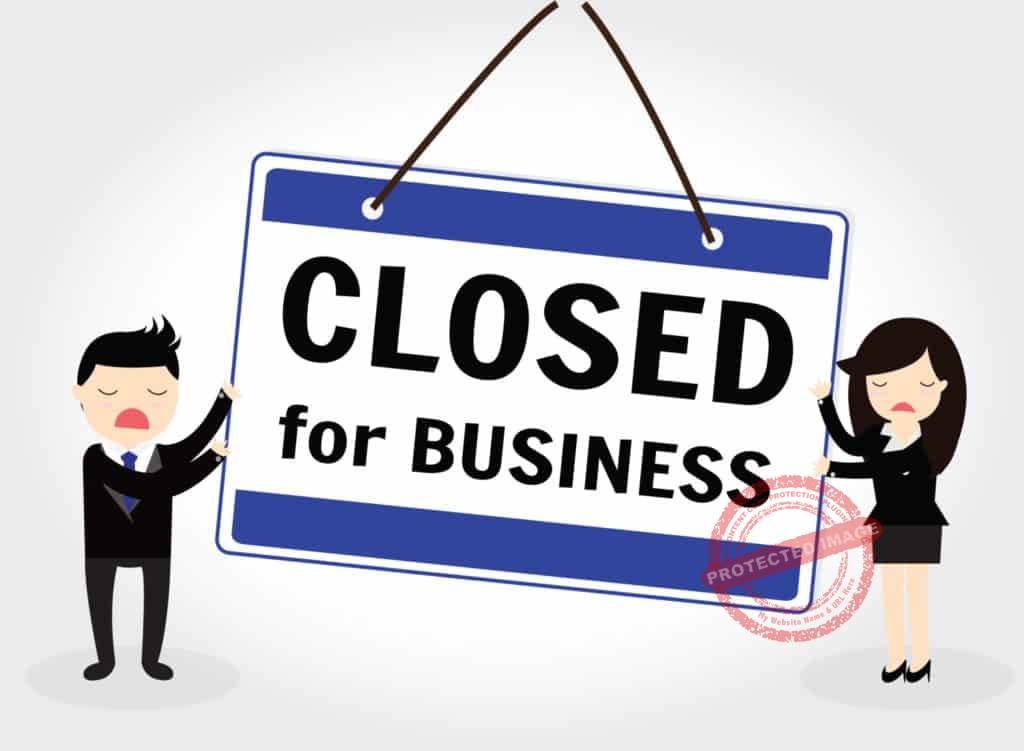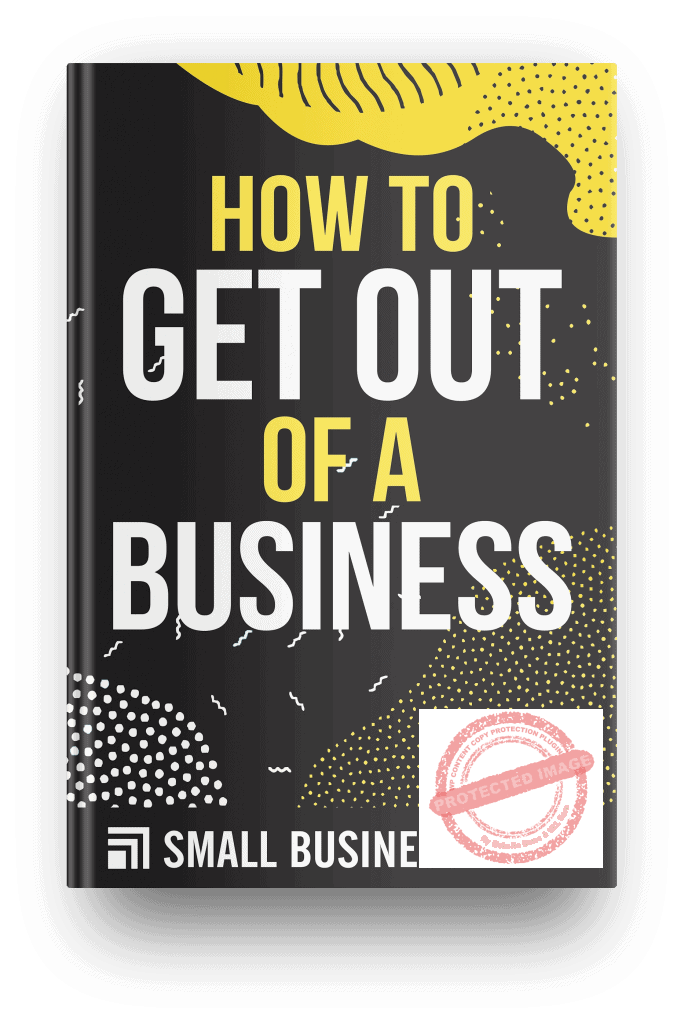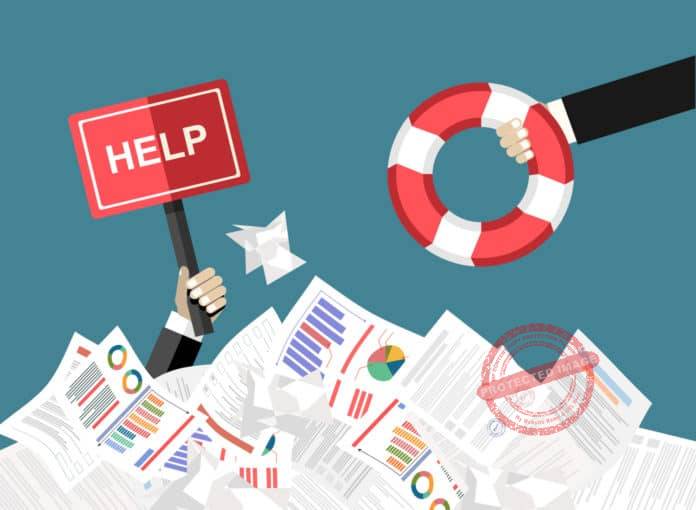Perhaps, your business has run its course and you would like to know how to get out of business. It’s not easy starting a business. In the same light, closing down a business can be quite challenging as well.
Just like business plans are carefully mapped out when an entrepreneur starts work on a new venture.
Similarly, exit strategies are equally as important and should be developed early on.
At some point during your operations, you should have a clear idea as to how to wind down a business.
The thing about exit strategies is that they aren’t exclusive to large corporations.
Even small business owners should know when to leave their business.
This could sometimes be a difficult decision to make.
However, if it’s’ for the best then you have no problem leaving that business.

Here are several questions that you might need to answer in the process and these are quite similar across the board; regardless of if you’re an investor or the proprietor.
-Is it time to move on; why?
-How am I going to get my returns;
-Is there any money to be made?
-How much am I going to get out of this?
Are there creditors that I have to answer to?
These are just some of the important inquiries that have to be addressed.
Exit strategies are not just for if your business is failing.
Exit strategies also apply to situations wherein a business owner can make a significant return by transferring ownership to a different person.
There are also scenarios where entrepreneurs leave their current businesses to bring new venture ideas to fruition.
Here are some strategies to consider when it comes to winding down a business.
Steps to Closing a Business

Regardless of your reasons, there are several steps to closing a business that you should carefully consider.
Basically, these steps will help you determine the best course of action for your business.
Start with an evaluation of your current condition, then identify your personal goals.
When closing down a business, it’s important that you know what you want to do moving forward.
You need to identify how much you need to get from your exit to maintain sufficient financial standing.
You also have to identify if you’ll be shutting down the business completely or simply transferring controls to another party.

It’s also important that you set realistic goals to be achieved as you go through this process.
A good example will be setting a cash expectation as you exit.
When it comes to the question of what to do if your business is failing, you shouldn’t forget that there’s still money to be made with the residual value of the brand and its assets.
You still have a stake in the business.
So as you’re creating your closing-a-business checklist, do not forget to work on all essential valuations.
Even if the strategy chosen involves transferring business ownership, make sure that your part in the investment and all relevant liquidations is clear.
What happens if your business fails?

Well, you shouldn’t dwell on it for too long.
Instead, spend your time understanding your market and determining whether or not there’s an opportunity to sell it rather than just closing it down.
Market value is something you can take advantage of.
You could be faced with the scenario wherein the potential liquidation amount you can get is not sufficient to support you after the exit.
You can study the market and boost the value of your business before you exit it for good.
Taking a couple of months to do this can be a lifesaver.
Finally, there’s the topic of taxation and legal concerns.
Consult with an accountant and a lawyer to evaluate your ownership privileges and the overall legal structure of your company.
Factor the outcome of these conversations into the steps you will take when getting out of your business.
Viable Exit Strategies

As previously mentioned, there may be different reasons as to why people let go of their businesses.
There’s transferring business ownership, some sell it off for profits, while others close it down completely to reduce losses.
The great thing about doing business these days is that you’re really not limited when it comes to exit strategies.
There are actually plenty of them to choose from.
Here are some options
Sell Off or Transfer Ownership To a Friend or Relative

It’s quite common for entrepreneurs to transfer ownership and control to friends and family to keep the business within the same environment.
This is a common practice that easily resolves the question of how to close down a business.
It allows for the same benefits to be maintained by the initial business owner and limit tax liabilities and other costly components.
But there may be several drawbacks to this kind of arrangement.
Especially if close friends and family aren’t interested in continuing the business, it can lead to misunderstandings, arguments, and feuds.
When it comes to capital arrangements, transferring ownership doesn’t guarantee that the initial business owner will be able to get enough of the capital reserves to be financially sound.

In this case, it may be better if the owner simply sold the company to the new owner, family or friend.
But with this option, there are capital gains taxes to be filed and paid.
Sell Off or Transfer Ownership To Members Of the Staff

When thinking about winding down a business, business owners can also consider transferring ownership to a trusted member of the staff.
This should be someone who’s actually worked there and knows the ropes.
For one, it’ll save you from the hassles of filing a notice of business closure.
And given that someone inside is willing to take the business on, chances are the business will continue to thrive and you’ll get enough capital in return.
Again, the same challenges apply here much like if you decide on transferring ownership to a relative.
If there’s no one interested in the business then that’s a problem right there.
Also, capital reimbursements may be questionable.
In this case, you might also want to reconsider the arrangement and just sell it off to an interested third party.
Sell Off or Transfer Ownership To Partners

This kind of arrangement is governed by a legal agreement that is different from those that come with selling the business to a family member, friend, or employee.
In this case, the ownership agreement will specify the transfer arrangements complete with dates, monetary exchanges, and addendums to the liability clause from previous operations.
This contract could also state that should the partner decide to sell off the business once more, the original owner has first dibs to purchase.

The great thing about this kind of arrangement is that it can be rather flexible.
Having the deal happen between people who’ve worked together makes for a seamless transfer.
The sale can happen quicker and with fewer hurdles that need to be overcome.
Again, you don’t need to think about getting a notice of business closure.
Sell Off Via ESOP (Employee Stock Ownership Plan)

If you’re thinking about how to sell your company, you can also consider an ESOP arrangement.
When it comes to the employee stock ownership plan system, the deal is that the business owner sells a trust to members of the staff.
This is ideal if the business has solid prospects and low debt.
As the trust is created, the owner’s shares are gradually purchased by the said trust until everything is under the full ownership of its members.
Now, the staff members can make regular tax-deductible payments here or buy all of the owner’s shares with a loan from a financial institution.
The thing with ESOP arrangements is that some parts of the company may be used as collateral for the loan.
So, owners will definitely not get the full capital amount that they desire.
It can be challenging to set up at times because of regulatory requirements as well.
Sell Off To a Third Party

When a business still has some life left to it, you can choose to sell it off to a third party.
In this case, you’re positioning yourself to generate the highest possible amount in line with capital returns.
The risks are kept at a minimum and there’s no need for you to make any additional investments.
What you have to do though is prove that the business you’re trying to exit still has some promise and remains to be profitably sound.
In this case, you’ll need financial reports and similar documents to prove your point.
Sell Off Via IPO (Initial Public Offering)

As you look through your closing-a-business checklist, you might also want to consider using an IPO.
Not only will it ensure the retention of your brand’s prestige but it can also assure you of long-term capital not to mention an improved overall financial position.
You’ll also be getting tons of free advertising that’ll make more people aware of your business.
But it’s a requirement that your business has a high valuation for an IPO to be possible.
If you’re interested in an IPO to answer the question of how to wind down a business then you should prepare yourself for a tedious process starting with the generation of comprehensive reports on all aspects of the company.
This will definitely take up a large chunk of your schedule.
Instead of running the business during preparations, you’ll have to address potential investors and analysts.
If you have people to help you then you’ll be fine but if not, this can pose some serious operational problems.
Shift To a Silent Partnership Agreement

Shutting down a business need not be an arrangement involving actual closure.
You can exit the business but still benefit from it by being a passive owner.
It’s commonly referred to as a silent partnership agreement.
You’re still included in the mix as a capital resource, an investor, but you have no direct control over operations and most decisions are made by the new faces of the company.
This is especially ideal for people who want to start selling off their business but still want to see how the business is doing without their involvement.
For some business owners, this provides them with great insight as they can see which tactics work and which don’t.
As such, they can alter future strategies when they do decide to start new ventures.
Transfer Ownership Via Stock or Share Gifts

There are tactics that you can resort to if you want to minimize taxes on sales and gains.
You can actually transfer the ownership of your business to other people by gradually removing your stock or share eligibility.
How?
By gifting them.
You can issue stocks as partial gifts which means that they will retain interest for a certain number of years or perpetually if you deem necessary.
These shares can also be considered as comprehensive gifts.
The latter involves full transfers of current shares.
Gradual Exit Via Capital Transfers

You can also pursue a gradual exit by transferring capital from entity to entity.
For most people, they know when to shut down a company because they’re seeing it fail.
But this doesn’t have to be your reality.
You can exit a profitable business if you’re more in need of liquid assets and capital transfers can help you with this.
Without selling your company, you can move money out of it and reinvest this into different stocks, when applicable.
As a result, you still have control over the business but now have liquid assets in the form of cash and dividends from your reinvestments.
Immediate Exit Via Liquidation

Another approach to exiting a business is through liquidation.
Basically, this involves you selling off all assets and closing the business down permanently.
Most business owners resort to this exit strategy because it’s simple enough to tackle.
The problem with full liquidation is that you’ll be exposed to a number of tax penalties.
This will leave you with minimal proceeds.
Most of the time, it affects the brand’s reputation as well for both clients and members of the staff.
Although the process is speedy and you end up with cash, the former may affect your future prospects.
Most of the time, these prospects are worth more than what you can gain from the foreclosure.
Immediate Exit Via Closure

Finally, there’s exit via closure. This is ideal for businesses that no longer have valuable assets and obligations.
The process is simple, hang up a sign and lock the place down.
Any legal obligations observed, are passed on to the proprietor.
Unless the company is owned under a partnership or corporate agreement, the law will obligate the proprietor to settle debts and the like.
This is usually done through the sale or transfer of personal assets.
This is something entrepreneurs should always be mindful of.
So there you have it.
It’s possible to leave a business and there are different exit strategies that you can consider.
These will depend on the type of business and what you want to achieve moving forward.
This is why it would be best to assess the condition of your business first before deciding on any particular exit strategy.
Also, try to identify personal goals so that you’ll end up with the best strategy for everyone involved.
The clearer everything is, the better the resulting strategy will be.
Click on Buy Now For a PDF Version of This Blog Post
 |










